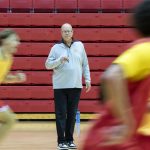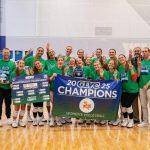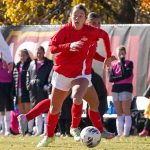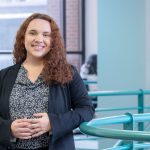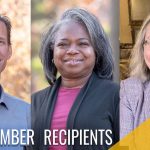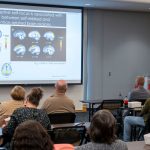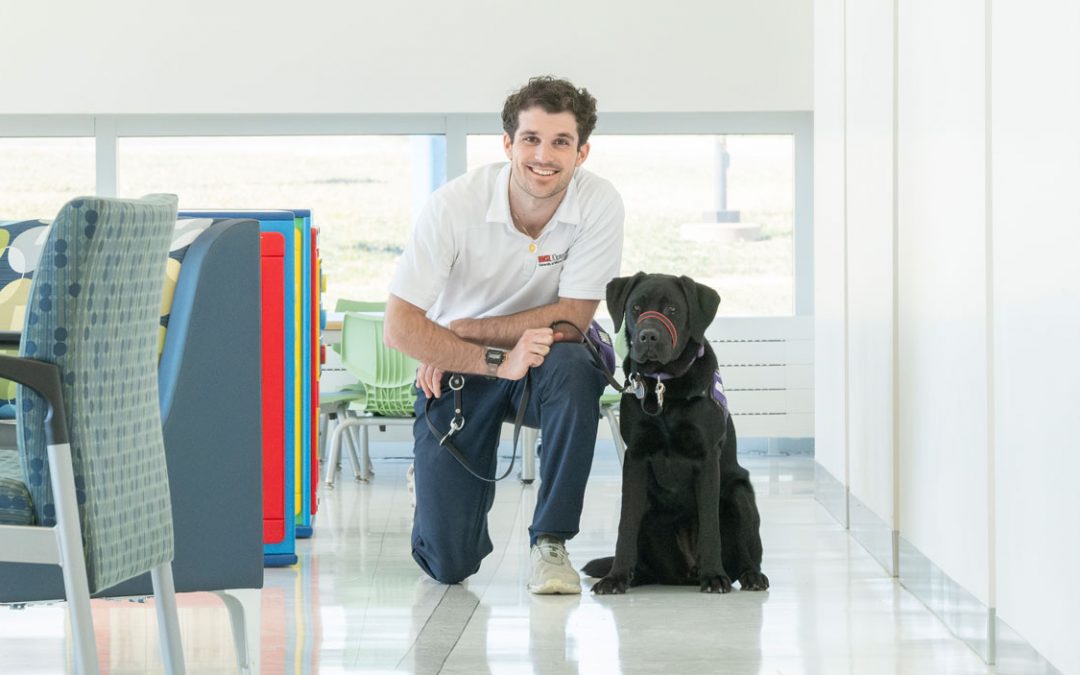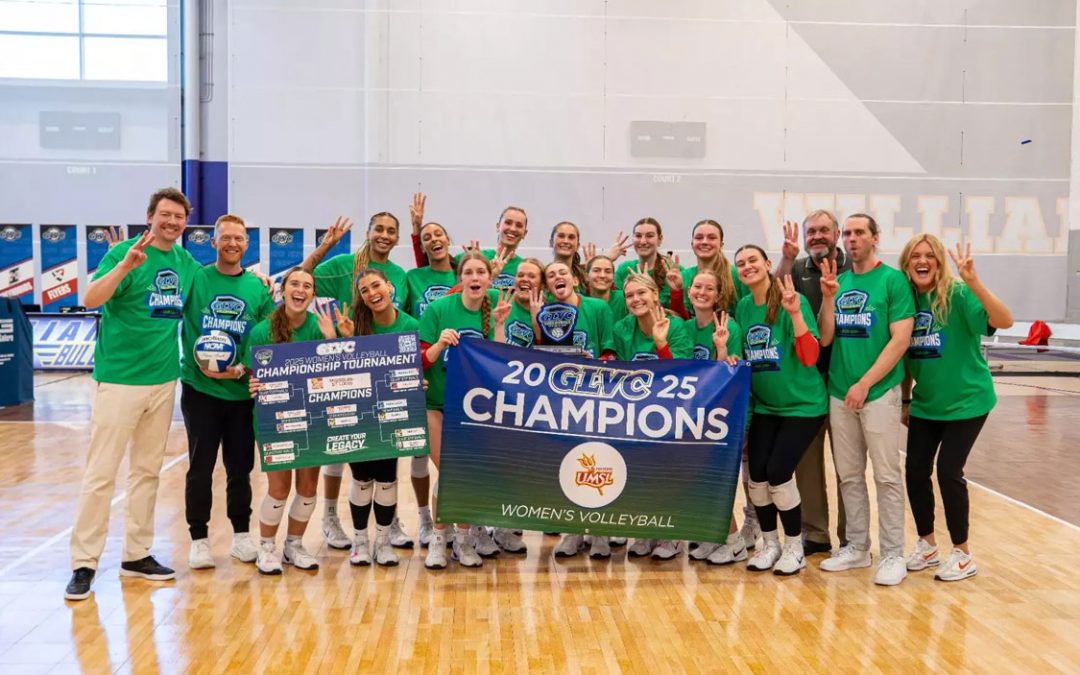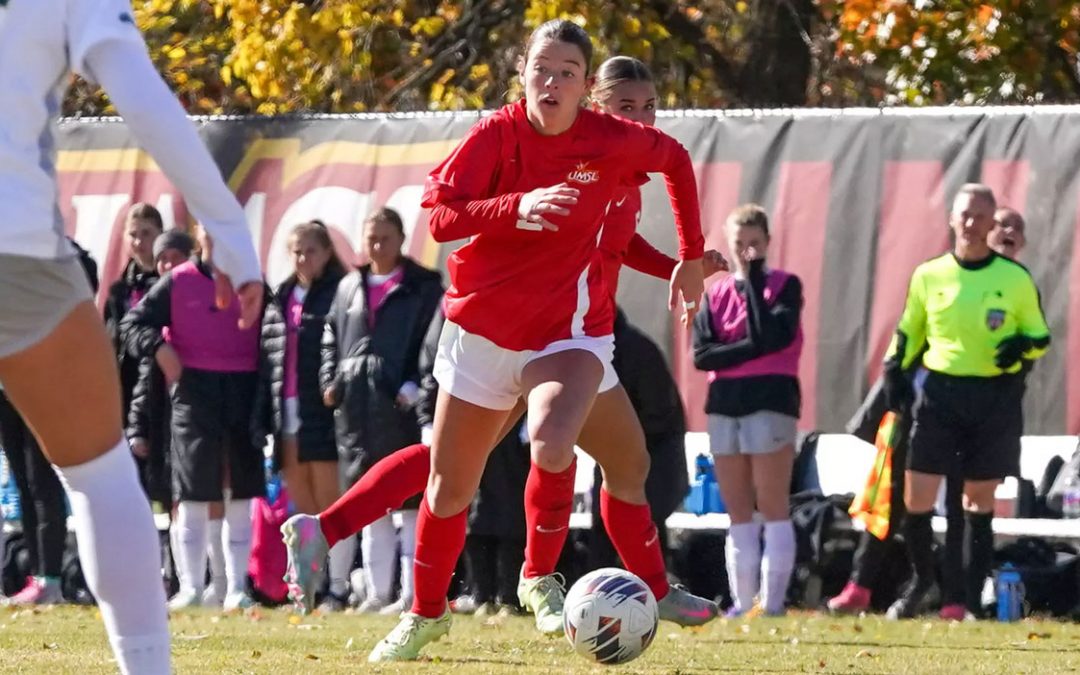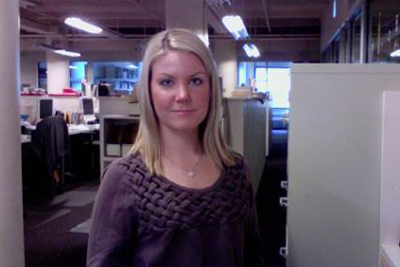
Alumna Annie Shields has worked on both coasts since graduating from UMSL, including a past stint as new media coordinator for Ms. Magazine in Los Angeles and her current position as community editor for the weekly journal The Nation in New York.
Annie Shields has become a social media maven since graduating from the University of Missouri–St. Louis in 2009 with a degree in sociology, and an undergraduate certificate in gender studies.
Recently, she moved to New York City to be the first ever community editor for the weekly journal The Nation. Before that, she worked as the new media coordinator for Ms. Magazine in Los Angeles.
UMSL Daily recently caught up with the 25-year-old to talk about her coast-to-coast career path and to see if she had any words of wisdom for people heading into the work force.
Where did you grow up?
I was born in south St. Louis and then lived in Florissant (Mo.) from ages 3-12 before my family moved to St. Louis Hills, a neighborhood in St. Louis.
How did you end up in the news and information business?
After I graduated I got an internship with Ms. Magazine and its publisher, The Feminist Majority Foundation. I pursued that because of my background in women’s studies and my passion for feminism. I have always been a big consumer of media and I loved the idea of being a part of it and having the ability to add a unique perspective on news and culture that was largely missing from the mainstream outlets.
How long did you work for Ms. Magazine, and what did you do there?
I worked at Ms. Magazine for two years including my internship. I began as a public relations intern working to help get publicity for the magazine. I also worked on development projects and event planning for the Feminist Majority Foundation. During my internship, I recognized a great opportunity to help the organization cultivate a more active social media presence. I asked for permission to take over the Ms. Facebook and Twitter accounts, and then went to work trying to grow our audience. My plan was to try and take on as much responsibility as possible in the hopes that I would become indispensable, and then ultimately to try and convince the organization to create a position for me. After a lot of time, effort and persuasion, my plan worked and I was hired on as the new media coordinator at Ms.
You’re 25 and you’ve accomplished a lot so far – are you doing what you thought you’d be doing? Are you happy with the way your career is progressing?
Yes, I am very satisfied, particularly since I didn’t graduate in four years. I was a little afraid I would be starting out at a disadvantage because I was graduating 3 semesters later than most of my peers, but I feel like I have caught up.
I had no idea what I would be doing after I graduated. I had a lot of ideas but no career path in mind. I never thought about my future or my education in terms of a specific industry or field. I have always made educational decisions based on what I found interesting and enjoyable and focused on my interests and passions. I loved sociology and I loved feminism so that’s what I studied, and I loved reading and watching the news and listening to the radio and just consuming and thinking about the media, so that’s what I decided to pursue. But I didn’t plan to end up working at a magazine, mostly because I didn’t really think I was qualified. But it turns out I am!
What advice do you have for new college graduates about the work force?
My advice is pretty simple. Work as hard as you possibly can and have a good attitude. And it’s important to remember that at any job you’re a part of a team. School is often about getting the best grades you can for your own benefit. But in the working world, you’re there to help the team. It’s not about you anymore as much as it is about the organization. I think that’s true wherever you work. And I can say that while my education was enormously helpful and prepared me in countless ways for the work force, my five years waiting tables during school were just as important to my success.
I have found that regardless of the school they’re from, recent grads who have held part-time or even full-time jobs during college are by far the best employees. A good work ethic and common sense are far more important than the prestige of your alma mater in my opinion. And I didn’t believe that when I was a senior. But I do now.
What will you be doing at The Nation?
I will be helping to cultivate an active and loyal online audience of readers with the goal of moving people down what’s called a “website aspirational value funnel.” That basically means turning new visitors into repeat visitors, returning visitors into regular readers, getting regular readers to register on the site and then become subscribers and donors. Also there’s a lot of emphasis on using social media to find new readers, increase our traffic and engagement by getting visitors to actively participate on the site, from sharing stories with their own networks to commenting to responding to calls for reader submissions and beyond.
What does a typical work day look like for you?
My job keeps me pretty close to the computer at all times. I can do things via mobile, for example live-tweeting a special event, but the bulk of my typical day is spent online. Once I get to the office I look over the latest stories and make a plan to push them out via social media. I have to stay on top of the news cycle so I can make sure that our stories are getting out there in a timely manner.
You’re The Nation’s first ever community editor – is there added pressure on you since you’re creating this position?
I wouldn’t call it pressure, but I do feel a strong need to get results, to achieve the goals the organization had when they decided to create this position. But in many respects this is uncharted territory, so everyone understands that we can’t know exactly what to expect. But really, it’s nice that I get to have a more active role in determining how my days will go, and what I am going to accomplish. It’s challenging, but in a good and exciting way.
What aspects of your UMSL experience helped shape your career path?
I definitely credit my women’s studies background with helping me get my foot in the door at a feminist magazine. From there, hard work and luck helped a lot too. I do think having a foundation of sociological knowledge was helpful in figuring out social media. The ability to understand people as groups and have insight into how groups of people act and interact translated well to creating online communities. And finally, the fact that I wasn’t saddled with a ton of loan debt after college made taking an unpaid internship for a few months possible, and made moving to expensive places like LA and New York more manageable, something that is very important in this economy. I am grateful for that.




